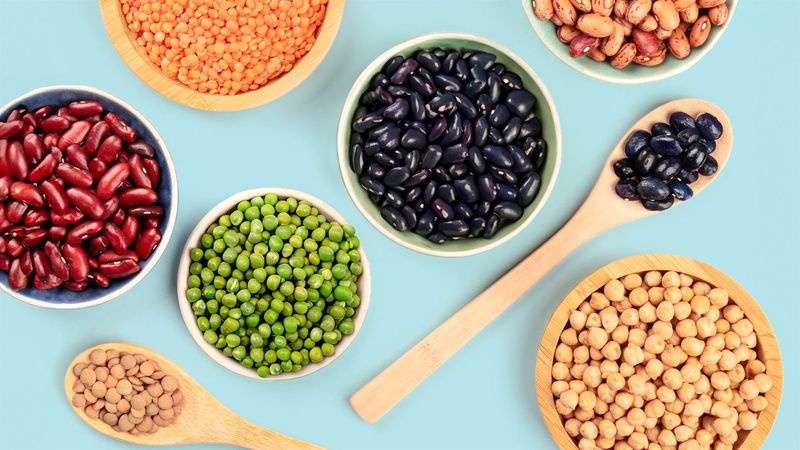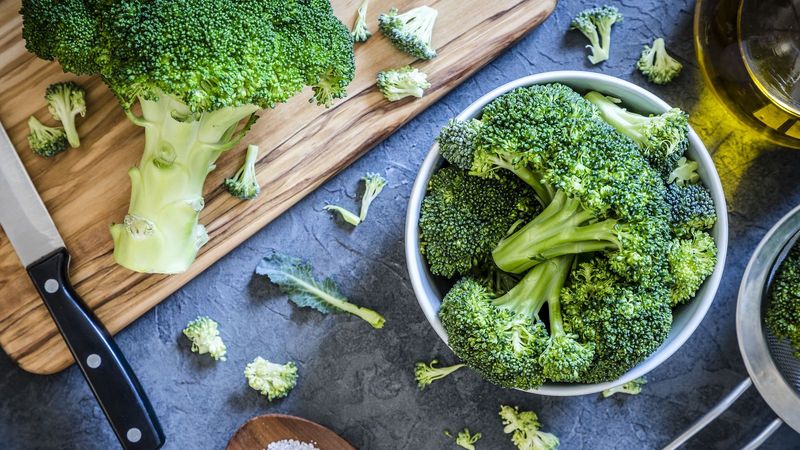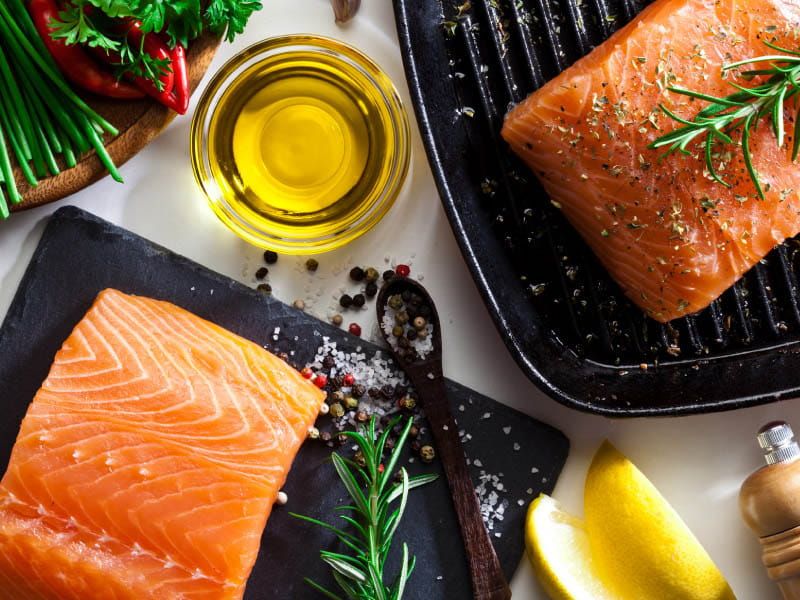High cholesterol has a way of creeping in quietly, often without noticeable symptoms—until it becomes a serious health issue. But you don’t have to wait for bad news to take control. Simple changes to your diet can help lower LDL (“bad”) cholesterol and boost HDL (“good”) cholesterol, all while keeping meals delicious and satisfying. These 9 heart-healthy foods are packed with fiber, healthy fats, and essential nutrients that work naturally to support better cholesterol levels. If you’re ready to protect your heart without sacrificing flavor, these smart, tasty additions are a great place to start.
1. Beans
Beans might be small, but they pack a mighty punch against high cholesterol. Their soluble fiber creates a gel-like substance in your digestive system that grabs onto cholesterol and carries it out of your body before it can enter your bloodstream.
Navy, kidney, pinto, or black—all varieties offer similar benefits. Just half a cup daily can make a significant difference in your cholesterol numbers. As a bonus, beans keep you feeling satisfied longer, which helps maintain a healthy weight. Try adding them to soups, salads, or mashing them into dips for an easy cholesterol-lowering boost to everyday meals.
2. Berries
Strawberries, blueberries, raspberries, and blackberries deserve a special place in your heart-healthy diet. These little fruits are bursting with antioxidants called polyphenols that fight inflammation and prevent plaque buildup in your arteries. The natural fiber in berries helps sweep away excess cholesterol before your body absorbs it. Research shows eating just one cup of mixed berries daily can lower LDL (bad) cholesterol by up to 11% in some people. Fresh or frozen, berries taste great on cereal, yogurt, or simply by the handful as a sweet, heart-protecting snack.
3. Flaxseeds
Don’t let their size fool you! These little brown seeds are one of nature’s most powerful cholesterol fighters. Flaxseeds contain high levels of alpha-linolenic acid, a plant-based omega-3 that helps reduce inflammation and cholesterol production in your liver.
The lignans in flaxseeds also help block cholesterol absorption. Ground flaxseeds work best since whole seeds often pass through your system undigested. Sprinkle a tablespoon on oatmeal, blend into smoothies, or mix into homemade bread dough. Your heart will thank you for making this small but mighty addition to your daily routine!
4. Broccoli
This cruciferous veggie might have been your childhood nemesis, but your adult heart loves it! Broccoli contains compounds that help your body produce more proteins that carry cholesterol out of your bloodstream. The combination of fiber, antioxidants, and anti-inflammatory properties makes broccoli a triple threat against high cholesterol. Studies suggest eating broccoli regularly can reduce LDL cholesterol while boosting HDL (the good kind). Lightly steamed or roasted with a touch of olive oil preserves more nutrients than boiling. Even adding small amounts to pasta, stir-fries, or soups contributes to healthier cholesterol levels.
5. Oats
Starting your day with a warm bowl of oatmeal might be one of the smartest moves for your heart. Oats contain a special type of fiber called beta-glucan that acts like a microscopic sponge, soaking up cholesterol in your digestive tract before it enters your bloodstream. Just one cup of cooked oatmeal provides nearly half the recommended daily amount of this cholesterol-lowering fiber.
Steel-cut and rolled oats offer more benefits than instant varieties with added sugars. For extra cholesterol-fighting power, top your oats with berries, flaxseeds, or sliced almonds—creating a breakfast that works double-duty for heart health!
6. Peanuts
Reaching for peanuts instead of chips or cookies could be a game-changer for your cholesterol levels. These crunchy legumes (yes, they’re not actually nuts!) contain plant sterols that block cholesterol absorption in your intestines. The healthy monounsaturated fats in peanuts help raise HDL (good) cholesterol while lowering LDL (bad) cholesterol. A small handful (about 1 ounce) provides enough benefits without too many calories. Unsalted, dry-roasted peanuts offer the most heart health benefits. Try keeping a small container at your desk for an afternoon snack that satisfies hunger while protecting your heart.
7. Sweet Potatoes
The vibrant orange color of sweet potatoes comes from beta-carotene, a powerful antioxidant that protects your heart. But their cholesterol-lowering superpower comes from their high pectin content—a type of soluble fiber that grabs onto cholesterol molecules.
Sweet potatoes also help regulate blood sugar levels, which is important since insulin resistance often goes hand-in-hand with cholesterol problems. Their natural sweetness makes them satisfying without needing added fats or sugars. Bake them whole, slice into fries, or mash them as a side dish. However you prepare them, these orange beauties help keep cholesterol levels in check while pleasing your taste buds.
8. Citrus Fruits
Oranges, grapefruits, lemons, and limes do more than brighten your day—they help clean out your arteries too! The pectin fiber in citrus fruits binds to cholesterol particles in your digestive system and escorts them out before they can cause trouble. Citrus fruits also contain hesperidin, a plant compound that improves blood vessel function and reduces inflammation.
The vitamin C in these fruits helps prevent LDL cholesterol from oxidizing, which is when it becomes most dangerous to your arteries. Eating whole fruits provides more fiber benefits than juice. Try adding orange segments to salads or squeezing fresh lemon into water for simple ways to protect your heart.
9. Salmon
Few foods work as hard for your heart as salmon does. This fatty fish is loaded with omega-3 fatty acids that actively lower triglycerides (a type of fat in your blood) while raising HDL (good) cholesterol levels.
The anti-inflammatory properties of salmon help reduce dangerous plaque buildup in your arteries. Studies show eating salmon twice weekly can lower heart attack risk by up to 27% in some populations. Wild-caught salmon generally contains more omega-3s than farm-raised varieties. Baked, grilled, or poached—just two 4-ounce servings weekly provides significant heart protection and cholesterol management without medication.









Leave a comment